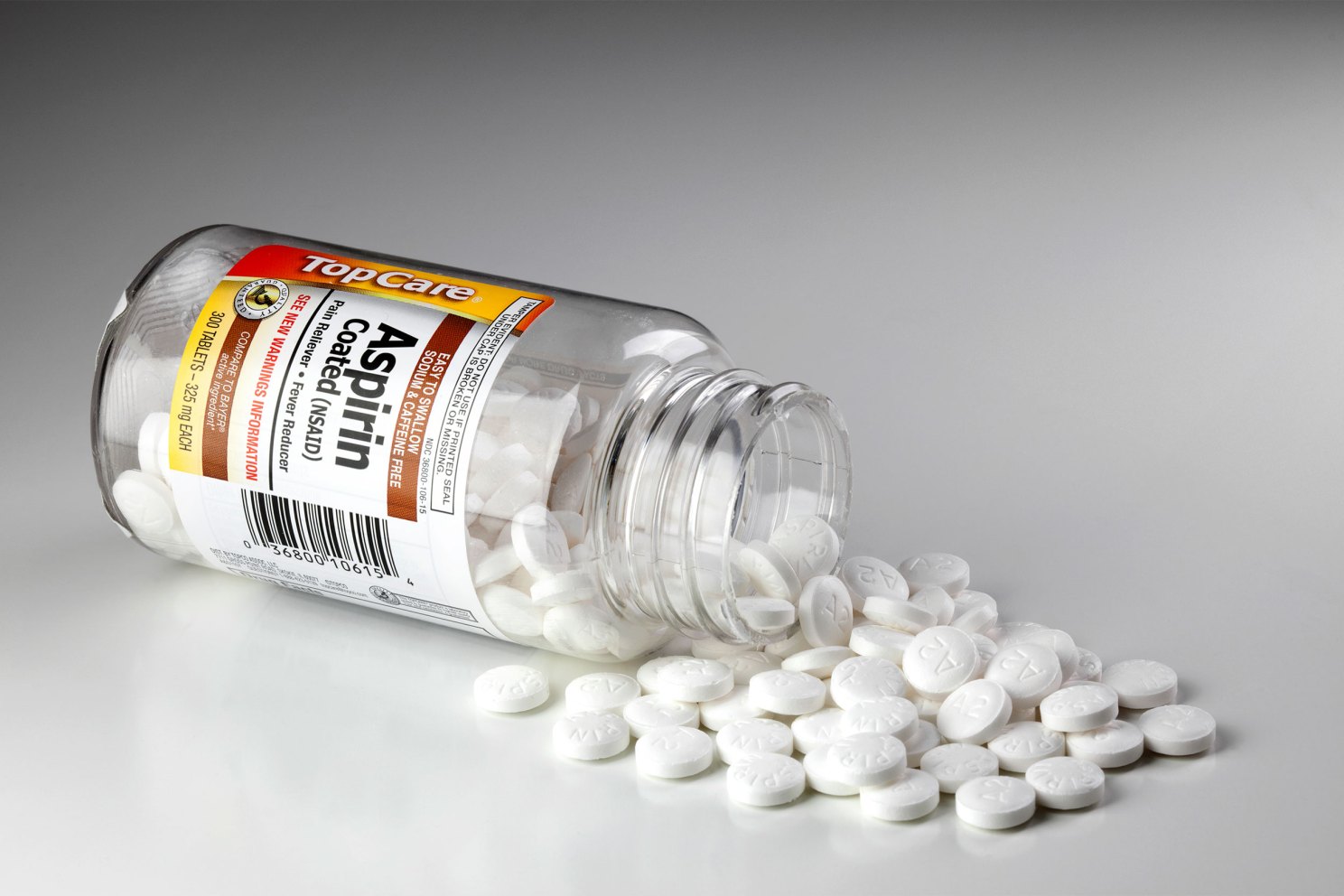
Aspirin cuts liver fat in trial
10 percent reduction seen in small study of disease that affects up to a third of U.S. adults
The most common chronic liver disease — metabolic dysfunction–associated steatotic liver disease (MASLD) — is characterized by an increased buildup of fat in the liver due to factors such as obesity and Type 2 diabetes.
Such elevated fat poses serious health risks, but a recent clinical trial published in JAMA and conducted by investigators from Massachusetts General Hospital points to a possible treatment: aspirin.
“Since MASLD is estimated to affect up to a third of U.S. adults, aspirin represents an attractive potential low-cost option to prevent progression to cirrhosis or liver cancer, the most feared complications of MASLD,” said senior author Andrew T. Chan, a gastroenterologist and a professor at Harvard Medical School.
Chan and his colleagues tested aspirin’s potential because the drug reduces inflammation and affects fat metabolism.
In their Phase 2 trial, 80 adults with MASLD were randomized to receive daily low-dose aspirin or placebo for six months. At the end of the study, the average change in liver fat content was minus 6.6 percent with aspirin versus plus 3.6 percent with placebo, showing that low-dose aspirin reduced the average liver fat content by 10.2 percent compared with placebo. The aspirin was found to be safe and well-tolerated, and also improved various markers of liver health.
“Multiple noninvasive blood and imaging-based tests for liver fat, inflammation, and fibrosis all showed a similar direction of benefit that favored aspirin treatment,” said lead author and principal investigator Tracey G. Simon, a hepatologist and an instructor at the Medical School. “Together, these data support the potential for aspirin to provide benefits for patients with MASLD.”
Additional studies are needed to determine whether continued aspirin use can reduce individuals’ risk of long-term health complications associated with MASLD, the researchers said.





